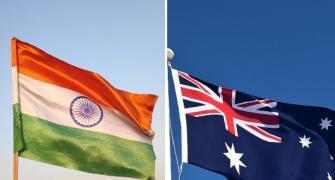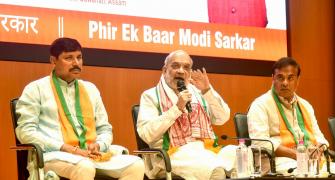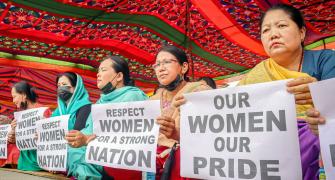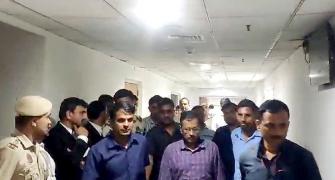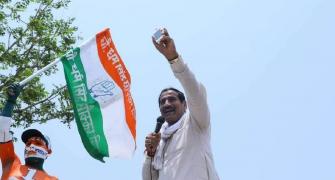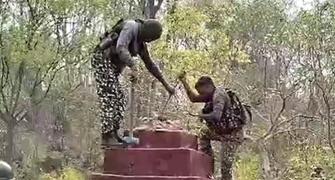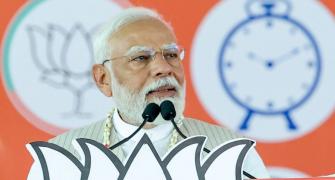American and Indian lawyers have taken over from diplomats to work through protracted legal issues to ensure that immediate tangible deliverables can be nailed down to coincide with United States President Barack Obama's visit to India next month. This, only so that there can be more substantive content to the visit and it is not merely symbolic.
On the US side, diplomats have been scrambling over the past few months to alleviate India's pet peeve regarding the US export entities list for dual-use technology, which still has the Defence Research and Development Organisation and Indian Space Research Organisation on it.
Over the past two weeks, senior Indian officials from Foreign Secretary Nirupama Rao to External Affairs Minister S M Krishna and Commerce and Industries Minister Anand Sharma to Defence Minister A K Antony who visited the United States, in their meetings with their US interlocutors have brought up the entities list as a sore point. They have also called for India's removal from it.
While the Obama administration officials have agreed with the points made by the visiting Indian officials, it's been a case of easier said than done because of the legal and legislative ramifications involved. Hence, lawyers from the state department, the commerce department, the Pentagon and other agencies have been pouring over the nuances of the legal framework of this list in order to make it palatable to India.
Assistant secretary of state for South Asian affairs Robert Blake told reporters last week that this was an issue that continued to crop up as a major priority for India in all of the recent high-level meetings. "We are looking to find a positive way forward here. But we are not quite there yet," he said.
The importance of India's removal from this list as a tangible deliverable of the envisaged strategic US-India partnership was underscored by National Security Adviser Shiv Shankar Menon, who visited Washington DC from October 6 to October 8 and reiterated the importance of this issue. "It is importance because it stitches together several parts of the relationship. It enables us to work together in sensitive fields, and it also enables us to work together in industries in innovation and technology-driven sectors," he said.
"It would also reflect the nature of our relationship today, where we work across the entire range of issues, whether they are security, defence issues or just the economic issues. So, for us, it's logical that actually the export control entities regime be updated."
Meanwhile, on the Indian side, there was genuine concern among diplomats over the continuing angst among US business and industry over the Indian nuclear liability bill, particularly since its provisions would leave them at a distinct disadvantage and even inhibit their investing in this sector.
Omer Brown, a key spokesman for the American nuclear industry, warned that India's nuclear liability law "puts in jeopardy the entire US-India nuclear cooperation agreement." He informed Menon that they had a meeting last week with Dr Banerjee in Vienna, but still did not hear of solutions to the problems. "There is significant divergence in the Indian law compared to the nuclear liability laws of every other country with a nuclear power programme," Brown asserted.
Menon, however, took issue with Brown's contention. "I don't think that the Indian law varies from international law to any great degree. There is a certain common body of international law, which applies, which is why we intend to sign the convention on supplementary compensation, which codifies that in one place."
"Our lawyers say that what we have done, the act, is in keeping with the CSC that it is entirely in conformity."
Industry sources told rediff.com that the quickest way for India to allay the apprehensions of US business would be for Delhi to sign the CSC before Obama arrives, but acknowledged that "we aren't holding our breath" knowing full well how bureaucracies operate, and more so now with lawyers thrown into the mix.
Interestingly, a report by the Congressional Research Service, considered the US Congress' own think tank, said last week that American companies are unlikely to engage in nuclear trade with India unless New Delhi signs the CSC.
Menon said last week that he was hopeful that all of the legal issues would be resolved before Obama's visit. "So that by the time we get to the visit, we can start the commercial negotiations and really the companies see their own way forward," he added.
But industry sources said with lawyers now involved and the nuances of the provisions of the Indian liability law being studied it may very well turn into a winter of discontent on the commercial application of a US-India nuclear deal.

